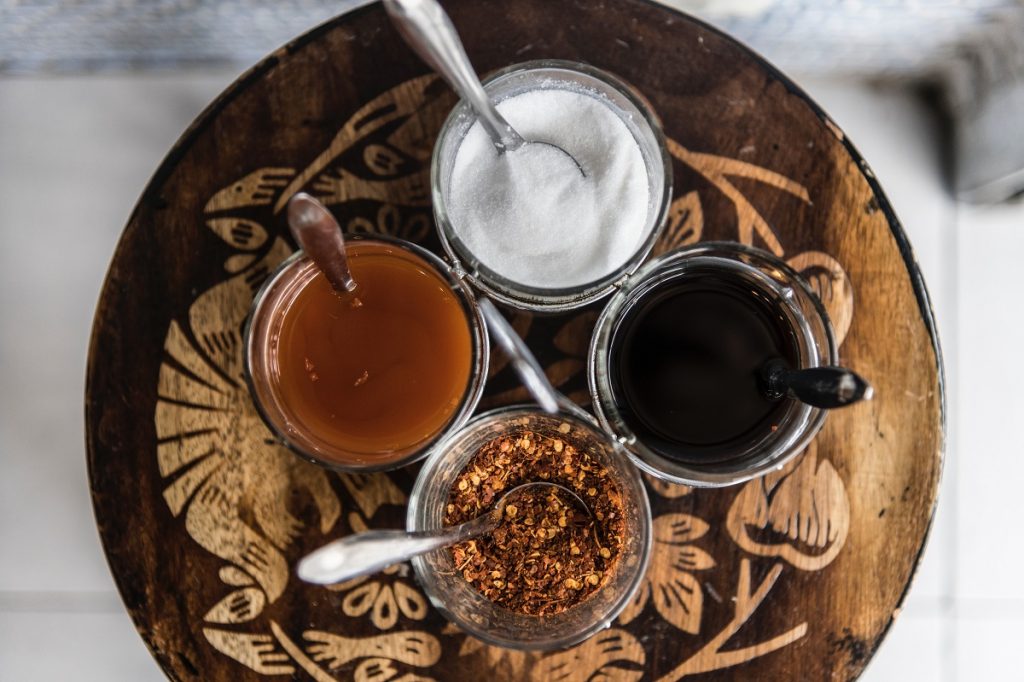The detrimental effects of artificial sweeteners and sugar are again topping world nutrition headlines as the latest studies point to toxic effects on digestive gut microbes and deceptively high levels of sugar hidden in “healthy” foodstuffs.
Sugar, and now artificial sweeteners, are “the” dietary gremlins, trumping fats, oils, and starches as most reviled additives.
“There’s no question that sugar is public enemy number one. Today, sugar kills more people than gunpowder. Sugar is slow suicide,” Dr. Ilan Samish, founder and CEO of Amai Proteins, tells NoCamels. His company is developing an innovative alternative to sugar and present-day artificial sweeteners.
Indeed, the World Health Organization, the United Nations, physicians and nutritionists the world over say that sweetened foods have caused a global health crisis.
Moreover, the United Nations dedicated a high-level meeting at the sidelines of the General Assembly in late September to nutrition and, among other topics, pointed to sugar as a culprit in the rise in obesity, diabetes, heart disease and cancer, among other health-related issues.
The harmful effects of artificial sweeteners
In early October, an Israeli-Singaporean study shot to the top of health news everywhere with its data showing that six oft-used artificial sweeteners were found to be toxic to digestive gut bacteria.
The collaborative study by researchers at Ben-Gurion University of the Negev (BGU) in Israel and Nanyang Technological University in Singapore, published in the journal Molecules, shows that six common artificial sweeteners — approved by the Food and Drug Administration – and 10 sport supplements that contain them, could be extremely detrimental to our health.

It is not the first time the effects of artificial sweeteners have hit headlines. Indeed, the risks of artificial sweeteners have been studied and questioned for decades.
But this latest study shows how bacteria found in the digestive system became toxic when exposed to concentrations of only one mg./ml. of the artificial sweeteners — aspartame, sucralose, saccharine, neotame, advantame, and acesulfame potassium-k.
“This is further evidence that consumption of artificial sweeteners adversely affects gut microbial activity which can cause a wide range of health issues,” said Prof. Ariel Kushmaro, John A. Ungar Chair in Biotechnology in the Avram and Stella Goldstein-Goren Department of Biotechnology Engineering.
The rate of consuming artificial sweeteners is on the rise, according to a 2017 research study by George Washington University Milken Institute School of Public Health, with 25 percent of children and more than 41 percent of adults in the United States believing these sweeteners are a healthy choice over sugar.
And that explains why recent results of the Israeli-Singaporean study garnered media attention across the globe: With widespread calls for a cut in sugar intake, artificial sweeteners are being more aggressively marketed as better for your health. Often people consume this ingredient without even knowing the artificial sweeteners are in the food products and drinks they’ve purchased.
“For decades, the food, beverages, and other industries have used artificial sweeteners as sugar substitutes for those who are diabetic and/or obese. Industries highlight the beneficial aspects of artificial sweeteners’ use, such as tooth friendliness, increased quality of life for diabetics and weight control. However, in addition to the environmental pollution issues, there has been much evidence about the possible negative impact sugar substitutes contribute to human health,” write the authors.
The study also cites that artificial sweeteners have “allegedly been linked to adverse effects such as cancer, weight gain, metabolic disorders, migraines, type-2 diabetes, vascular events, preterm delivery, kidney function disorders, liver antioxidant system, hepatotoxicity, immune system disruptions and alteration of gut microbiota activity.”
In other words, claims that artificial sweeteners are better for your health should be met with a healthy dose of skepticism.
“The results of this study might help in understanding the relative toxicity of artificial sweeteners and the potential of negative effects on the gut microbial community as well as the environment,” said Kushamaro.
Meanwhile, a UK study on hidden sugars and sweeteners in so-called “healthy” and “organic” food products, which was published late last month, has caused confusion in the supermarket.
The study warned consumers that foods designated as “healthy” may in fact be harmful. The authors used yogurt as an example, showing that most have deceptively high levels of sugar, with organic yogurts among the worst offenders.
According to that study, organic yogurts contained an average of 13.1 grams of sugar per 100 grams, children’s yogurts averaged 10.8 grams per 100 grams, and natural yogurts had an average of five grams per 100 grams.
Sign up for our free weekly newsletter
Subscribe“While yogurt may be less of a concern than soft drinks and fruit juices, the chief sources of free sugars in both children and adult’s diets, what is worrisome is that yogurt, as a perceived ‘healthy food’, may be an unrecognized source of free/added sugars,” the authors wrote.
Sugar VS Fat
The global sugar market is valued at some $90 billion.
Reports trace the adding of sweetness to foods in the Western world back to the 1960s. According to numerous reports, the Sugar Association paid three Harvard scientists the equivalent of $50,000 in the 1960s to help them convince Americans that sugar had no ill effect on our health. The Harvard scientists published a review of research on sugar, fat, and heart disease in the prestigious New England Journal of Medicine – and blamed fat alone for causing heart disease.
Over the years, consumption of sugary foods and added sugars – those not found naturally in fruits or vegetables — has soared and obesity rates along with them.

According to the WHO, the average person in the US consumes more than 126 grams of sugar per day, twice the amount the world health body recommends for daily intake.
With our palates regulated to sweet tastes, alternatives to sugar are in high demand. Artificial sweeteners were the go-to for many years, but with studies like this month’s Israeli-Singaporean research showing that ingesting these substitutes may be harmful, other options are needed.
Israeli-developed solutions
That’s where the likes of Amai Proteins comes in. The Israeli biotech company is one of a growing number of food-technology firms seeking to develop sweet sugar substitutes.
“The goal of Amai is to make a global meaningful effect on sugar reduction by many different ways,” Samish tells NoCamels. “We’re producing a healthy sweetener. Amai’s proteins get digested in the upper gastrointestinal tract with zero insulin resistance.”
Moreover, the company’s products don’t have the bitter aftertaste commonly associated with artificial sweeteners.
According to the company’s website, Amai is collaborating with leading food and beverage companies such as PepsiCo, Danone and SodaStream, among others.
Israel is home to some 750 active startups and companies in the food tech and agriculture tech industries, according to a May report by the Israeli non-profit Start-Up Nation Central.
Other local companies taking on the sugar and sweetener global space include DouxMatok, a startup that developed a patented sugar reduction solution. In July, DouxMatok announced a partnership with German company Südzucker, the largest sugar producer in Europe.
Israeli startup Lampados International has developed a dissolving vegetable protein sweetener that looks like a meringue kiss to replace standard powder and tablets in the tabletop sweeteners market.
Unavoo, meanwhile, hopes the next time you want to sweeten your coffee, you’ll grab Heylo, a product that looks like a regular got-to sugar packet but instead is made of organic Stevia and natural dietary fibers.
And taking it one step further, A1C Foods is an Israeli outfit that has developed a patent-pending formula to lower the glycemic index of food products to make them low-carb, healthy and without artificial sweeteners.

“We are on a revolutionary journey to introduce a new approach to eating, by adjusting people’s pallets to lower levels of sweetness, while enjoying great-tasting food,” write endocrinologist Mariela Glandt and entrepreneur Ran Hirsch, co-founders of A1C Foods on their website.
“Through our products we provide an easy way to accomplish detoxification from the sickening dietary habits that we have adopted over the past 50 years. We believe this is the way to stop and reverse the obesity and diabetes pandemic,” they say.
Viva Sarah Press is a journalist and speaker. She writes and talks about the creativity and innovation taking place in Israel and beyond. www.vivaspress.com
Related posts

Editors’ & Readers’ Choice: 10 Favorite NoCamels Articles

Forward Facing: What Does The Future Hold For Israeli High-Tech?

Impact Innovation: Israeli Startups That Could Shape Our Future






Facebook comments